Our Capacity
Maji na Ufanisi: Our Capacity
"Water for All"
Maji na Ufanisi has a committed, versatile and qualified group of staff with vast experience in program management and implementation.

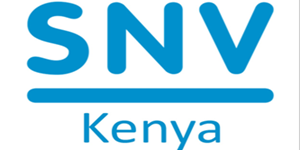
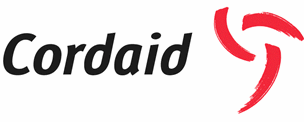
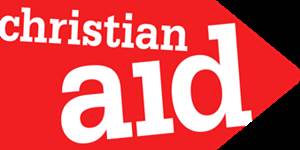

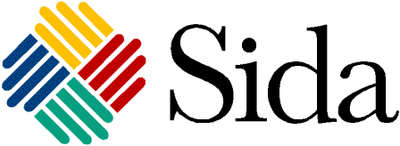
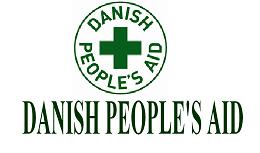
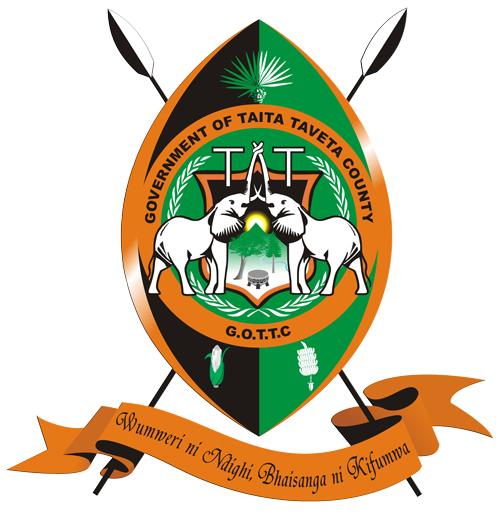

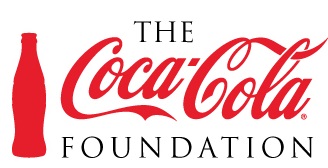
About Us
MnU (Water and Development) is a non-profit, membership-based, registered Kenyan Non-Governmental Organization (NGO). Since its inception in 1997, the organization has been a key player in improving the lives of thousands of people every year by providing access to clean and safe water, improving sanitation, hygiene, and waste management.
With 27 years of experience, MnU has scaled a range of WASH technologies and implemented water, sanitation, and hygiene interventions in Kenya’s urban, rural, and ASAL areas.
MnU’s interventions capitalize on WASH as an entry point in addressing fundamental human rights issues such as improved health, gender mainstreaming, and creating employment.
The organization targets marginalized communities through water, environment, and sanitation interventions, as well as current climate change projects that help create jobs for the beneficiaries.
MnU’s driving vision is “Water for All,” in tandem with the United Nations’ Sustainable Development Goals (SDGs).
This vision motivates the organization to work hard towards ensuring that the population has easy access to dignified living, which means the availability of good sanitation services, safe water uses, and living in a secure environment. These are fundamental rights that should be available to all.
MnU’s mission is to “Be the leader in the Water Sector, influencing policy, building knowledge, and articulating best practices for sustainable water resource development and management in Kenya.”
This mission is why MnU exists – to be an active and leading player in water sanitation and hygiene (WASH) activities, particularly for the disadvantaged population across the country.
MnU is committed to addressing the bottom-of-the-pyramid water and sanitation issues, highlighting crosscutting themes in water governance, climate change, and gender, and influencing policies and advocacies inclined to WASH-related issues.
MnU is also responsive to global goals and trends.
MnU is a trusted partner of many communities, national and county governments, development agencies, and the private sector.
The organization is uniquely placed as a knowledge broker with membership-based cities that enable it to capture and share knowledge in relevant ways for diverse audiences.
MnU is influential at the national and county level where it works and is considered a “go-to” agency by those seeking to improve the lives of men and women living in or vulnerable to poverty.
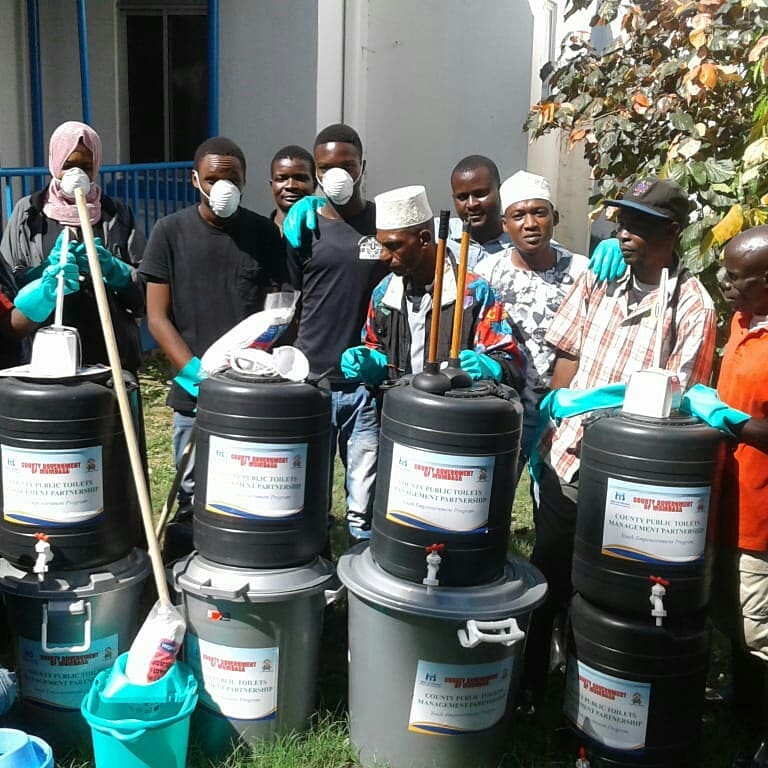
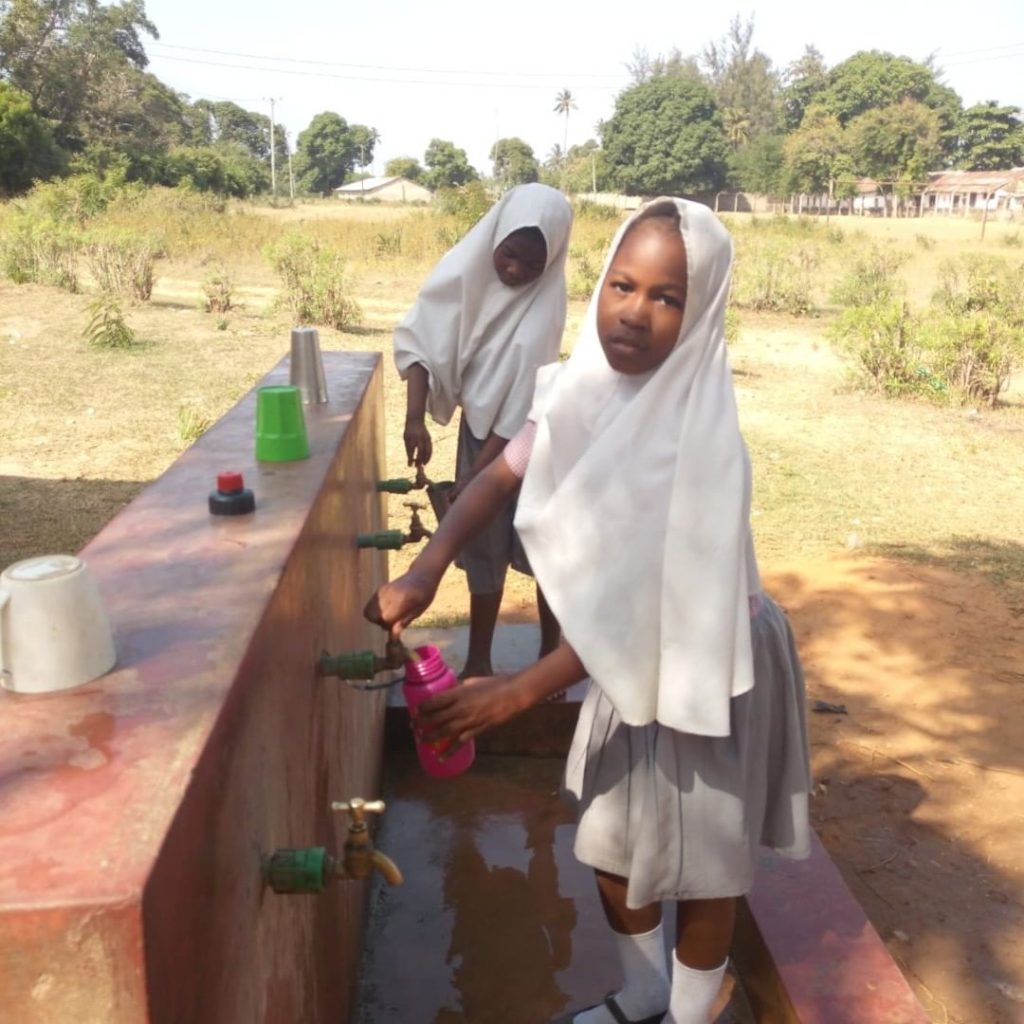
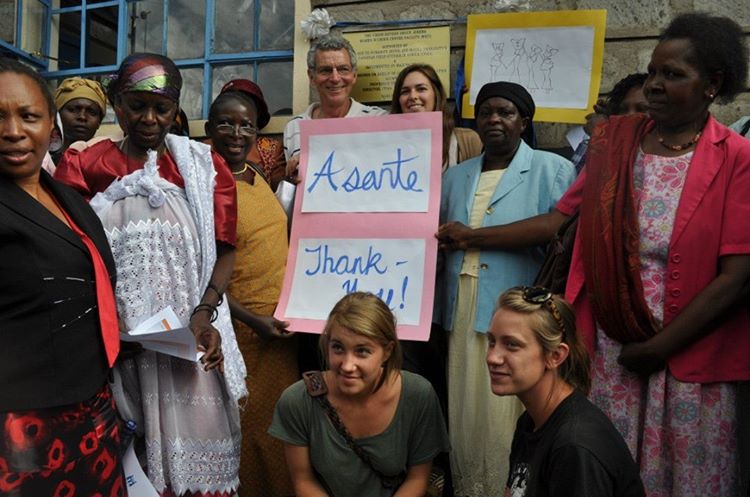
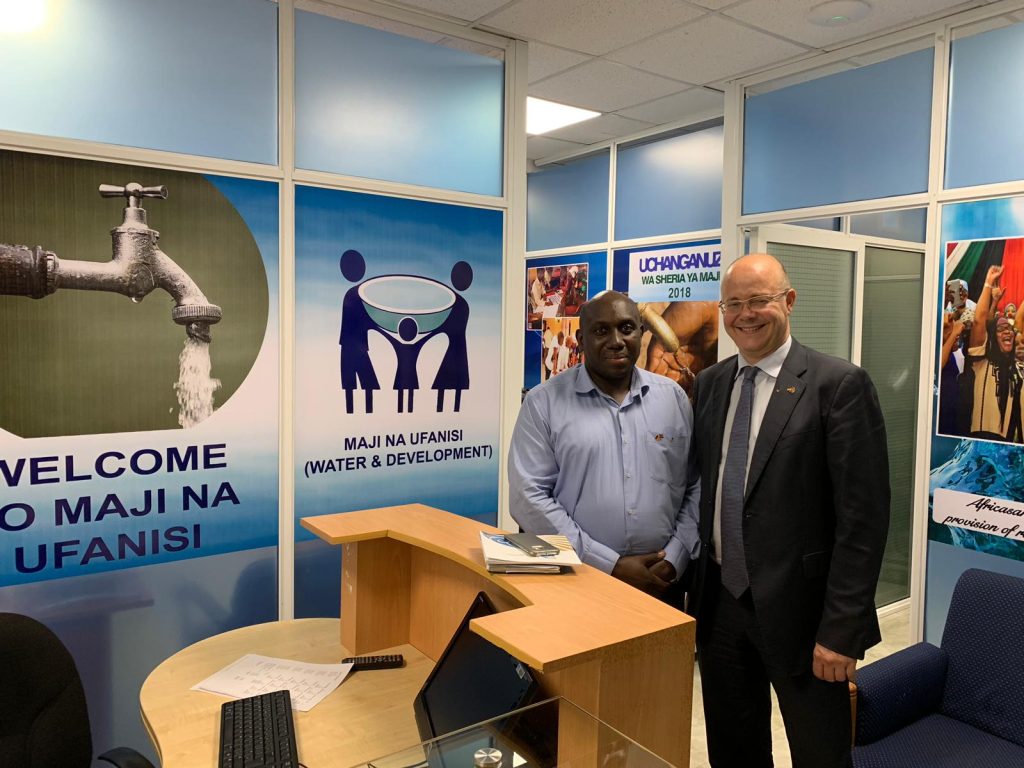
Our Background
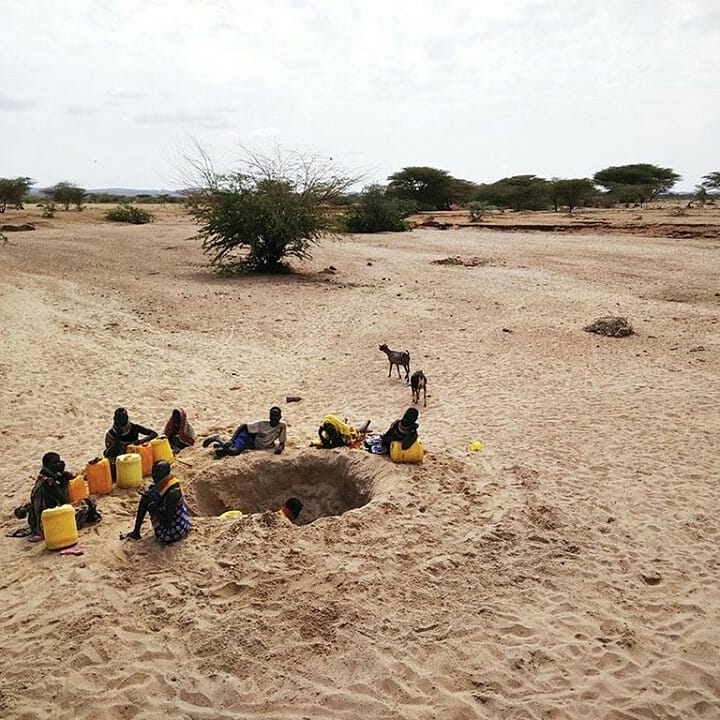
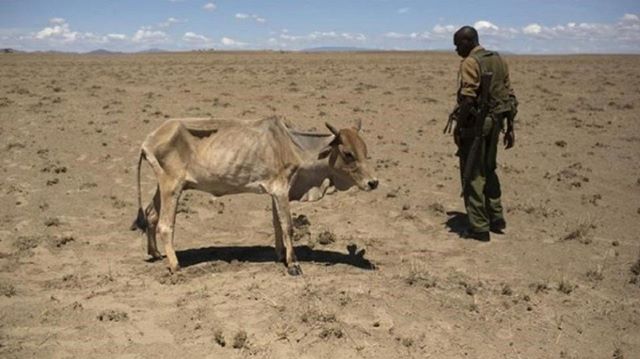
MnU is a registered Kenyan Non-Governmental Organization (NGO) that was established in 1997 following the exit of Water Aid UK from the country.
As a membership-based organization, it took over all activities and responsibilities from Water Aid, benefiting from established networks, technical skills, and vast experience.
MnU’s core programs focus on providing sustainable water, sanitation, hygiene solutions, and addressing climate change, with a particular focus on reaching disadvantaged communities to improve access to safe water and better waste management.
The organization’s membership, which consists of professionals from key sectors, is the supreme governing body, electing directors to the MnU board.
The MnU management is led by the Executive Director and two senior managers in charge of Programs and Finance & Administration, respectively.
The organization has two offices in Nairobi and Mombasa City. MnU’s interventions have had a significant impact in reducing disaster risks and improving the lives of thousands of people in Kenya.
Cooperative Relationships
MnU’s primary donors over the past 15 years have been the Swedish International Development Cooperation Agency (SIDA) and Danish People’s Aid (DPA).
However, the organization has also received funding from various other international, national, public, and private organizations and institutions, including:
- Department for International Development (DfID)
- Netherlands Development Organization (SNV)
- United Nations Centre for Human Settlements (UN-HABITAT), Catholic Agency for Overseas Development (CAFOD)
- Rotary Club of Denver Southeast
- Ford Foundation
- Christian Aid (CA)
- CORDAID
- Coca Cola Foundation.
MnU’s recent project involvement includes the Slum Upgrading Programme, which had a budget of US $1.5 million. Additionally, the Embassy of Sweden has funded MnU’s WASH program and Civil Society Urban Development Programme (hosted at MnU) with a total budget of US$60 million over the last ten years.


Our Capacity
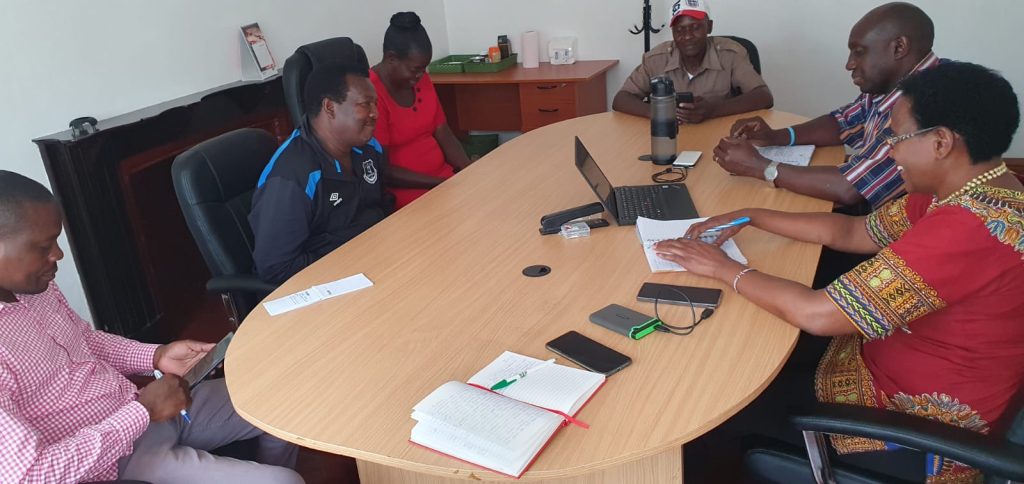

Institutional Capacity
By closely linking human welfare, livelihoods and income with ecosystem services, Maji na Ufanisi creates a virtuous cycle that transforms threats and challenges to opportunities for human advancement within ecosystem sustainability-thus creating “a future in which people live in harmony with nature”.
Maji na Ufanisi has pionneered the Water, Sanitation and Hygiene Enterprise Model (WASHEM) that creates self systaining WASH ecosystems in informal settlments in Kenya.
Maji na Ufanisi’s Philosophy and Approach is based on the knowledge that ultimately, real development is in people and their ability to take increasing control over the resources and decisions that directly affect their lives.
This means that direct community participation is the most ideal way of undertaking positive change to the society.
Financial Capacity
Maji na Ufanisi has extensive experience in managing grants, having implemented and reported on programs/projects funded from multiple sources with different and distinct requirements.
Hosting several grants has enabled the organization to try and test financial and monitoring systems, internal controls, and governance architecture.
The organization has a financial policy that guides fiscal management.
Qualified and experienced financial staff manage the grant finances and adhere to the financial policy.
Financial information is managed in Sage Pastel Evolution, a robust software platform that is upgraded annually to ensure relevancy, security, and data integrity.
Maji na Ufanisi also has a robust business continuity policy in place to help the organization recover from unforeseen disasters faster and get the systems up and running more smoothly.
The Board of Directors and External Auditors offer oversight, and their recommendations, after examining the books of accounts annually, get implemented by the organization.
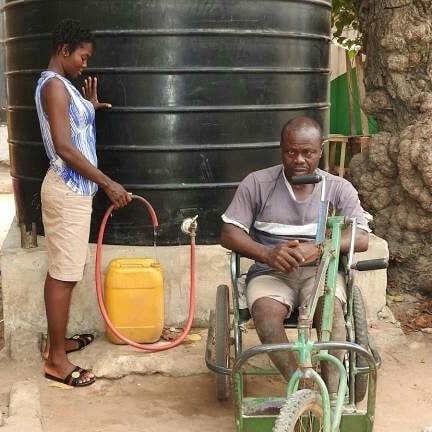
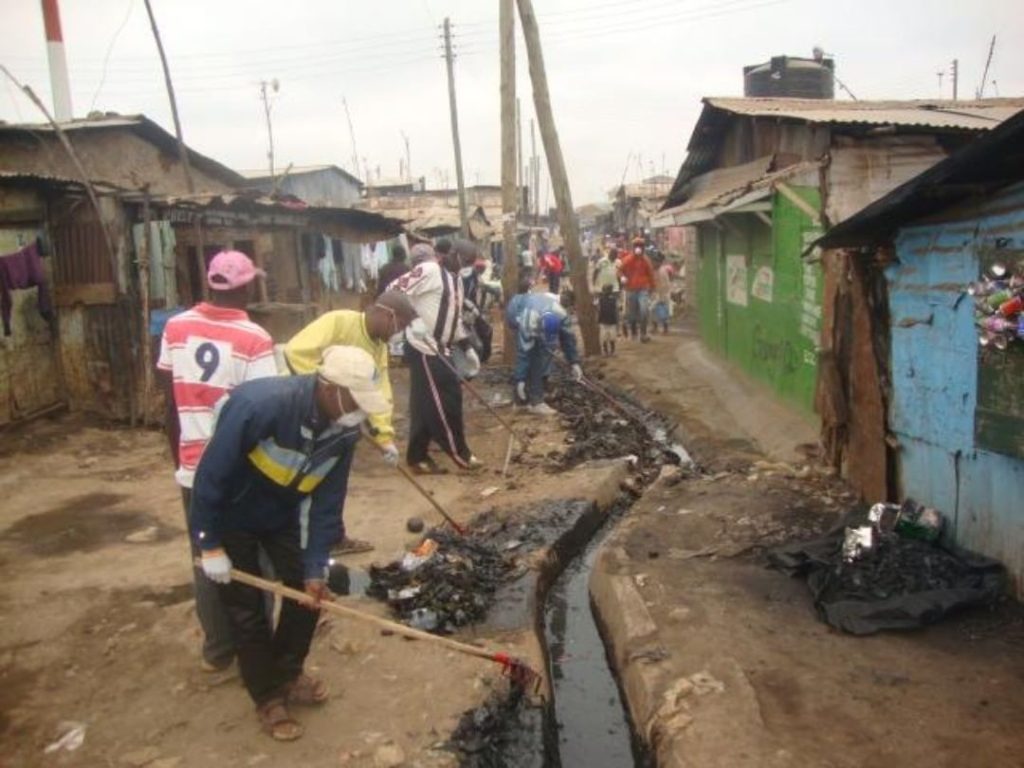
Theory of Change
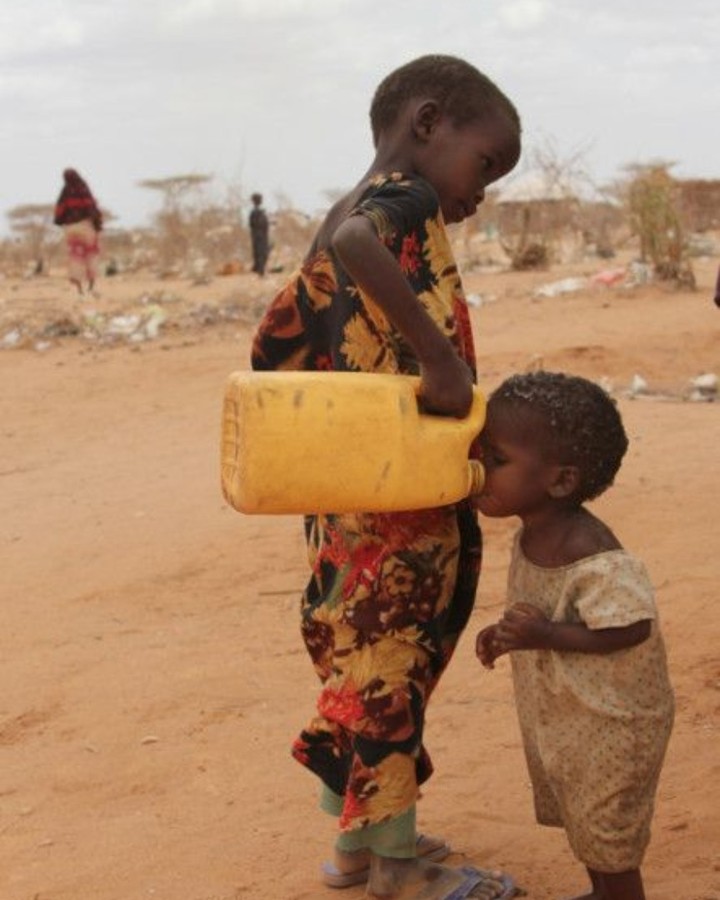
MnU’s Philosophy and Approach are based on the knowledge that actual development is in people and their ability to take increasing control over the resources and decisions that directly affect their lives.
This means that direct community participation is ideal for positive social change.
MnU will use its growing body of knowledge on what works on the ground to influence decision-making.
And accelerate implementation by creating the capacity of local institutions to franchise practical and applicable implementation models while redressing social imbalance through its gender mainstreaming and social inclusion programs.
The four-track process will facilitate the achievement of water, sanitation, and hygiene-related national development targets more effectively than working independently and mitigate the risk of poorer outcomes through systemic evaluation and monitoring programs that improve subsequent implementation.
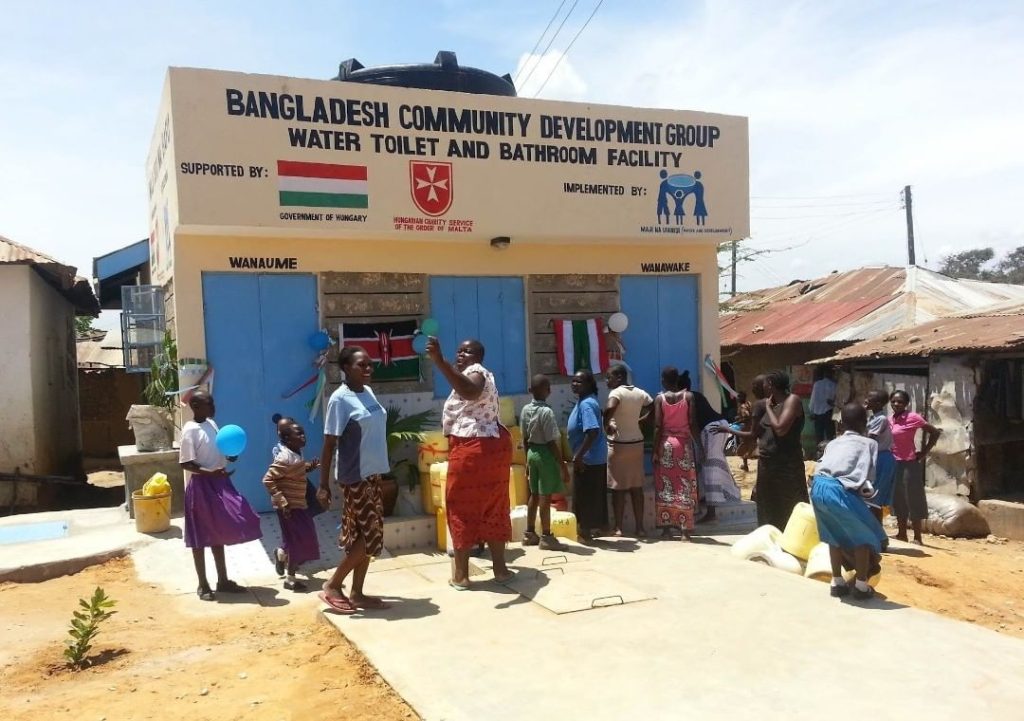
1. Evidence-Based Policy advocacy
In densely populated informal settlements, peri-urban areas, and problematic market WASH infrastructure, MnU will hold on to its existing successful initiatives in Mombasa and Nairobi as proof of concept to drive policy direction towards supporting and enabling this kind of initiatives at national and county levels.
For ASAL areas and rural livelihoods, the success and lessons from the previous programs’ successes in Kenyan ASAL regions will demonstrate how to build the capacity of Community-Based Organizations to promote sustainable approaches and inform policy and practice for both national institutions and County Governments
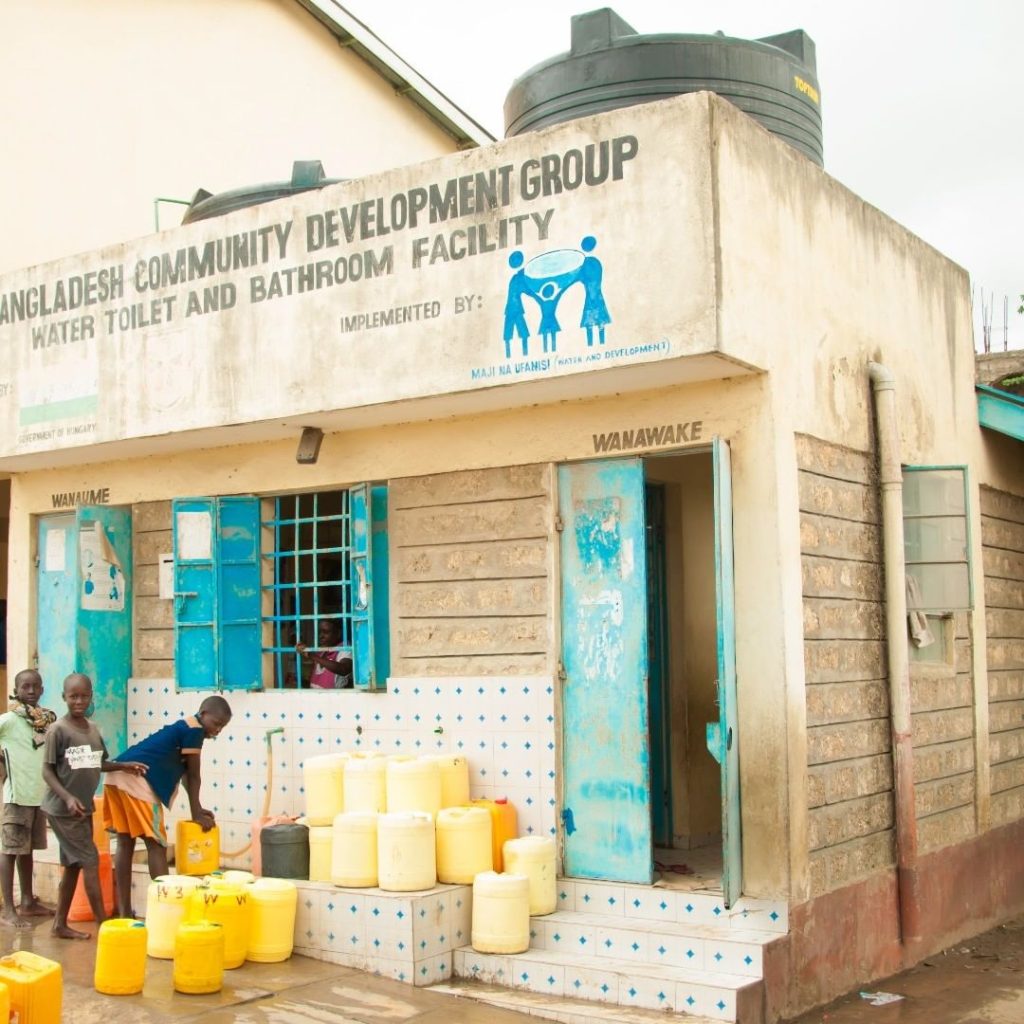
2. Creating capacity of Community-Based Organizations to Replicate
MnU scale up and accelerate uptake and implementation of financially sustainable and efficiently managed urban WASH and ASAL social enterprise models that account for climate variability and provide for adaptation to promote resilience approaches.
MnU will have pilot projects in crucial implementation areas that will serve as direct learning and reference models for active CBOs in particular counties.
This will ensure that implementation is undertaken by an increasing number of local organizations, strengthening both the capacity of local implementation and ensuring that as MnU exits particular projects, adequate knowledge of the complex (infrastructure) and soft (management) systems is in place.
The local private sector will be essential in creating the value chain on which CBOs, youth, and other entrepreneurs depend to implement their activities successfully.
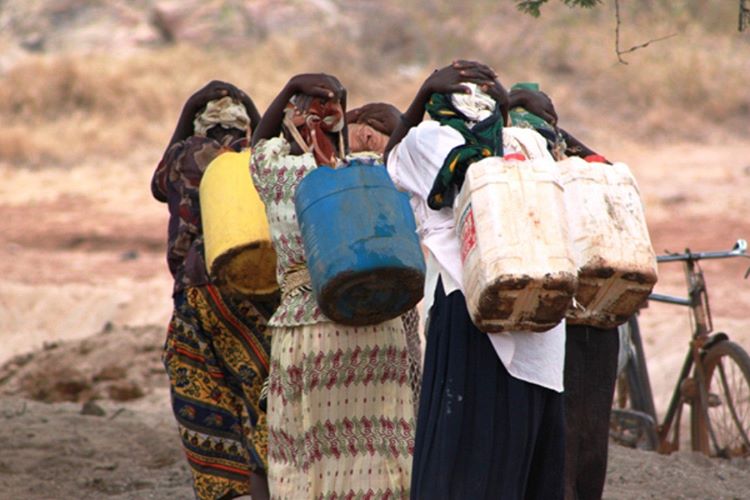
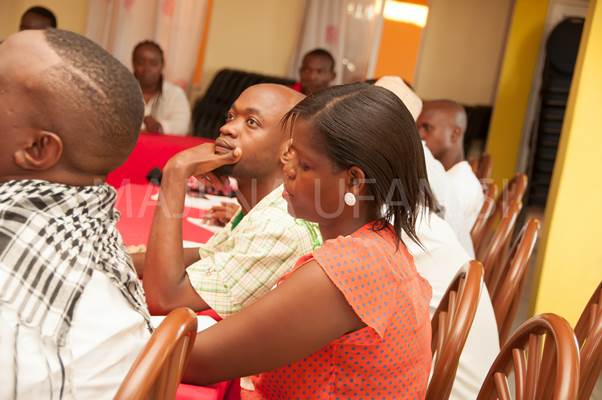
3. Gender mainstreaming and Social Inclusion
MnU scale up and accelerate uptake and implementation of financially sustainable and efficiently managed urban WASH and ASAL social enterprise models that account for climate variability and provide for adaptation to promote resilience approaches.
MnU will have pilot projects in crucial implementation areas that will serve as direct learning and reference models for active CBOs in particular counties.
This will ensure that implementation is undertaken by an increasing number of local organizations, strengthening both the capacity of local implementation and ensuring that as MnU exits particular projects, adequate knowledge of the complex (infrastructure) and soft (management) systems is in place.
The local private sector will be essential in creating the value chain on which CBOs, youth, and other entrepreneurs depend to implement their activities successfully.
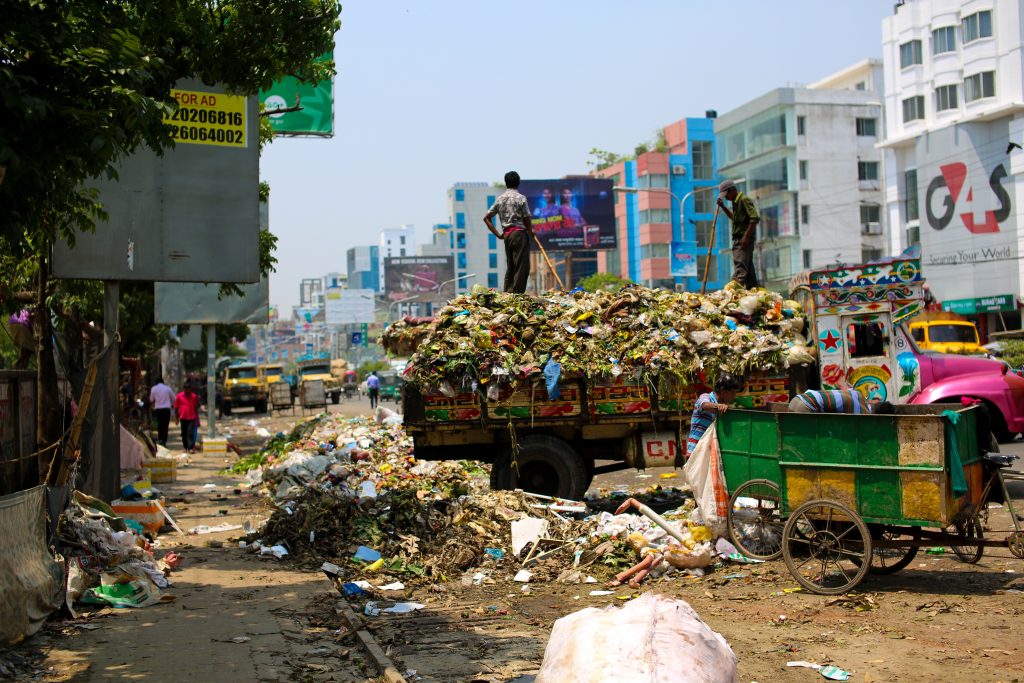

4. Circular Economy
Maji na Ufanisi (Water & Development) will explore the impacts of municipal waste on communities as an opportunity to capture Value in the developing circular economy in poor urban, rural, and peri-urban neighborhoods.
MnU will utilize innovative approaches to develop appropriate business models for investing communities in solid waste management systems to increase the economic empowerment of youth and women groups involved in waste management.
The organization will, in the process, support solid waste management streams and logistics to WASH service providers (WSPs) in respective counties.
Monitoring, Evaluation and Learning (MEL)
Maji Na Ufanisi (MnU) ensures monitoring evaluation and learning (MEL) is an integral part of project design.
It is strategically positioned for monitoring the performance of the programs and reporting on progress toward their results.
It includes the program’s development hypothesis and results framework with critical assumptions, illustrative interventions, well-defined performance indicators that include baseline and expected values for each program year, a description of data collection and analysis methods, an evaluation plan, and a knowledge management and learning plan.
Developing and implementing our evidence-based strategy, including analysis of options and engagement of stakeholders from three main groups; government, community, and private sector and other civil society actors.
This guarantees that linkages and dynamics exist within the functions of a WASH, and results encompass sustainable outcomes aligned with the country’s strategic plans and donor-specific education and WASH-specific priorities.
The process also emphasizes monitoring system performance and evaluating outcomes.
The MnU’s theory of change is an evidence-based and problem-solving logic framework that is constantly reviewed to identify any gaps in logic and learn whether the assumptions made hold, if certain aspects of the implementation contribute more to an objective than others, or if changes in context are impacting implementation.
MnU, through sharing its knowledge and experiences, assists sector stakeholders in making decisions and implementing programs according to the latest evidence and best practices by ensuring that knowledge is shared locally, regionally, and globally.

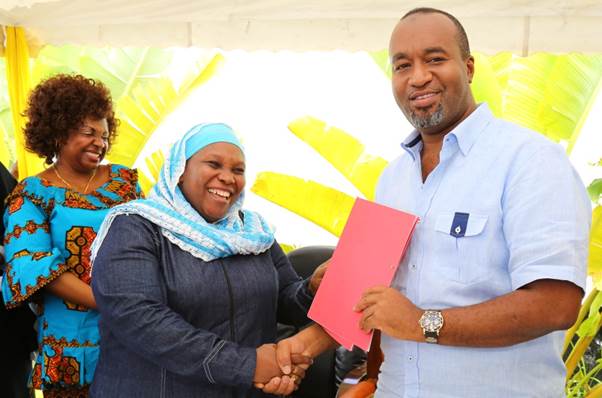
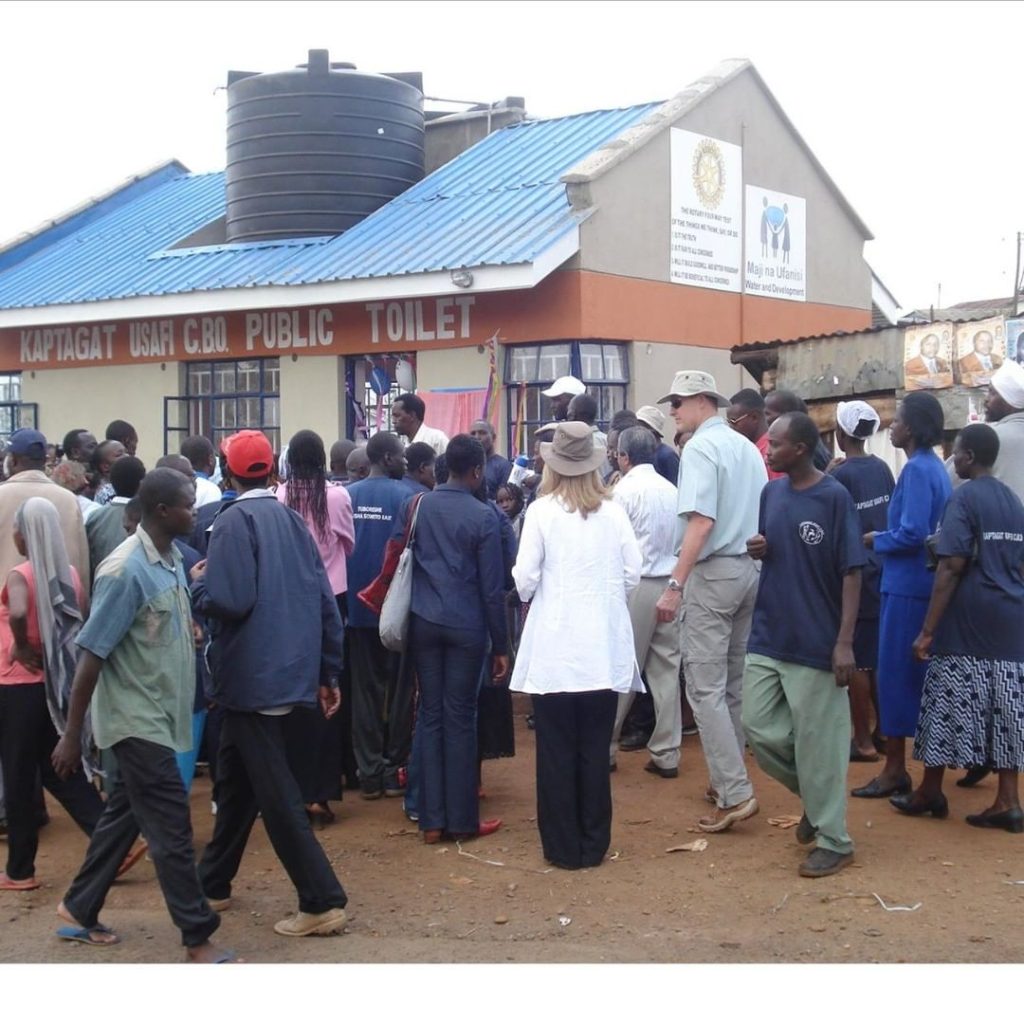










Support Us Through Mobile Money
Maji na Ufanisi Paybill number. 4106985.
Store number. 4106985
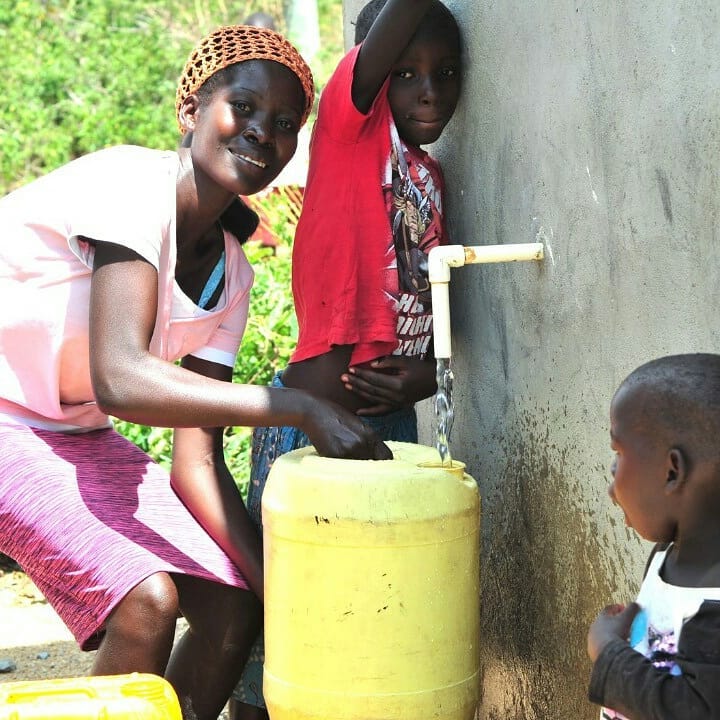
Support Us Because Clean Water is Life
What our Beneficiaries and Partners have to say:

